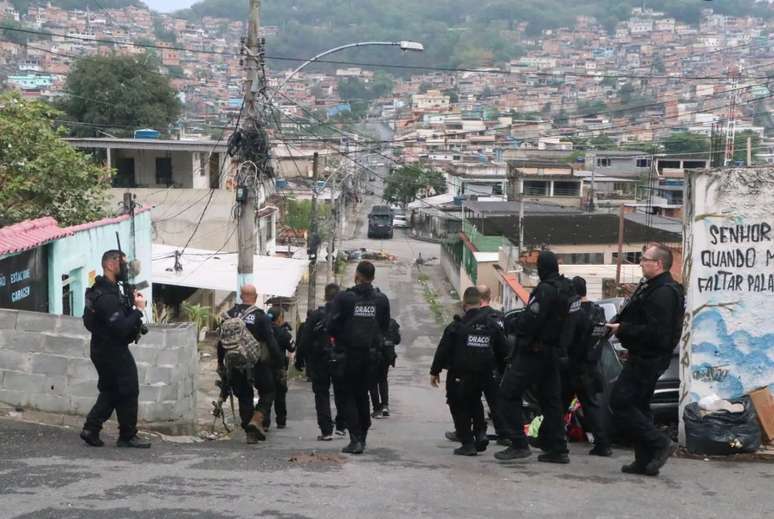The movement against the law banning imports from deforested areas comes in the context of negotiations for the Mercosur-EU agreement. Environmentalists fear the implosion of the law, which producer countries have firmly opposed. Two days after Brazil asked the European Union (EU) to postpone the law enacted by the bloc to ban the import of products from deforested areas, Germany announced on Friday (13). /09) has sent a request to the European Commission to do so.
The move comes in the context of negotiations on the free trade agreement between Mercosur and the EU, which Germany has championed.
Citing a lack of clarity on key points of the regulation, Berlin has called for it to enter into force only on 1 July 2025, six months later than the current deadline – the regulation was approved in June last year and, according to the current timetable, will enter into force on 30 December this year.
“Companies need enough time to prepare,” said German Food and Agriculture Minister Cem Özdemir of the Greens.
Özdemir said the law’s entry into force at the end of the year could lead to the collapse of supply chains, harming the German and European economies, small producers outside the bloc and consumers.
The day before, on Thursday, Federal Chancellor Olaf Scholz had already told reporters that he had defended the suspension of the law in a meeting with European Commission President Ursula von der Leyen until certain points were “clarified”.
Critics of the device complain about “impractical requirements” and “bureaucratic burdens” for manufacturers and companies.
The largest group in the European Parliament, the conservative European People’s Party (EPP), of which von der Leyen is a member, called the law a “bureaucratic monster”.
Other European parties say the bloc has yet to clarify how the rules will work in practice.
What the anti-deforestation law says
Praised by environmentalists, the European law sets a time frame for deforestation, excluding products such as coffee, cocoa, soy, wood, palm oil, beef, paper, rubber and its derivatives, such as leather or furniture, produced in forests destroyed after December 2020.
The bloc is, after China, the largest market for these products and, according to the environmental NGO WWF, is responsible for 16% of global deforestation.
The text stipulates that companies importing into the EU will be responsible for tracking their supply chains, using satellite and geolocation data, to demonstrate that they have not purchased raw materials from deforested areas.
Exporting countries considered high risk would have at least 9% of their products inspected, with the percentage decreasing in countries where the risk of deforestation is considered lower – this categorisation, however, has so far been left aside amid criticism from countries that it is a “political tool” that would allow the bloc to choose who will have “special” access to the European market.
According to the regulation, the European Commission “may” also take into account “the existence, compliance or effective enforcement of laws protecting human rights, the rights of indigenous peoples, local communities and other traditional property rights holders”.
A diplomat told AFP news agency that the EU has not yet come up with compliance rules or a clear system for ranking countries according to the risk scale.
Another critic of the law, World Trade Organization chief Ngozi Okonjo-Iweala, made a similar complaint in an interview with the Financial Times, saying the lack of clear compliance rules caused uncertainty for exporters who did not know whether their products would be banned.
What Brazil Says
The Brazilian government fears that the law could be used to reduce the share of raw materials the country exports to the EU and wants some form of compensation if it is implemented. It also says it increases production and export costs, especially for small producers.
According to a letter signed by Ministers Mauro Vieira (Itamaraty) and Carlos Fávaro (Agriculture) and sent to the European Commission on Wednesday, 30% of exports to the bloc are products affected by the regulation, equivalent to 15 billion dollars (R). 83.5 billion dollars).
Vieira and Fávaro say the regulation raises “serious concerns for several Brazilian export sectors and the government,” and call on the EU not to implement it on time and to “urgently reassess its approach to the issue.” They also say the law is a “unilateral and punitive instrument, which ignores national laws on combating deforestation” and contradicts Brazil’s “principle of sovereignty.”
In the past, other countries in Latin America and Africa have raised similar objections to the law, as has the United States.
How the anti-deforestation law was born
The Amazon, which covers nearly 40% of South America, has lost about 20% of its cover over the last century due to agroindustry, mining, logging and urban development.
This is a problem because forests absorb carbon and are essential for combating climate change and balancing ecosystems.
President Luiz Inácio Lula da Silva has pledged to end illegal deforestation in the Amazon by 2030, a task that means going against already established interests in the region.
“Brazil believes that anti-deforestation regulation is problematic because it covers a third of its exports linked to deforestation. It is up to Brazil to ban deforestation, not the EU to change its rules,” MEP Pascal Canfim, from the centrist group Renew Europe’s Bench, told X.
“We knew from the beginning that this is a battle that touches on very large economic interests,” Canfim told AFP news agency.
According to him, the EU imports 15 billion euros a year (92.5 billion R$) of products linked to deforestation, especially soy. “This is exactly the problem we want to solve.”
The bloc’s representatives have reported that the European Commission is indeed considering delaying the implementation of the law or simplifying it. But that would require reopening the legislation, which could create an even bigger political battle, especially given that the European Commission will have a new (and more conservative) composition starting next week, following the latest European elections.
These conversations worry environmental groups.
“Last year, the world lost a forest area the size of Switzerland,” explains Nicole Polsterer of the NGO Fern. “The debate over postponing the law carries a serious risk of abandoning it altogether, as some are determined to do.”
Other groups say many companies and countries have already prepared to comply with the law and are well underway.
ra (AFP, Reuters, ots)
Source: Terra
Rose James is a Gossipify movie and series reviewer known for her in-depth analysis and unique perspective on the latest releases. With a background in film studies, she provides engaging and informative reviews, and keeps readers up to date with industry trends and emerging talents.







